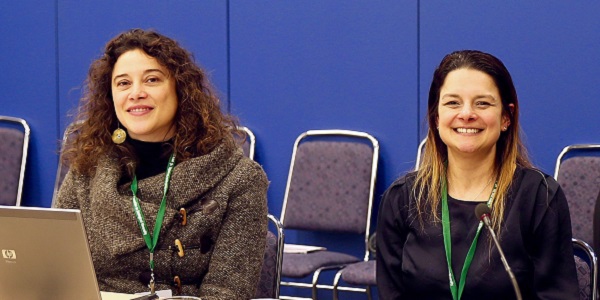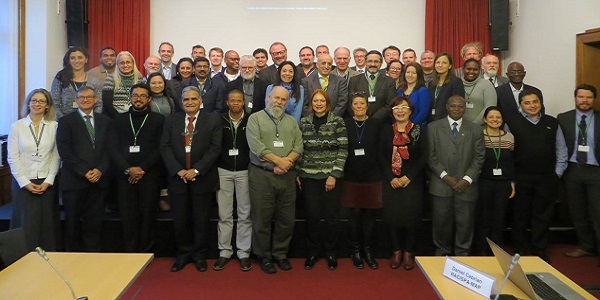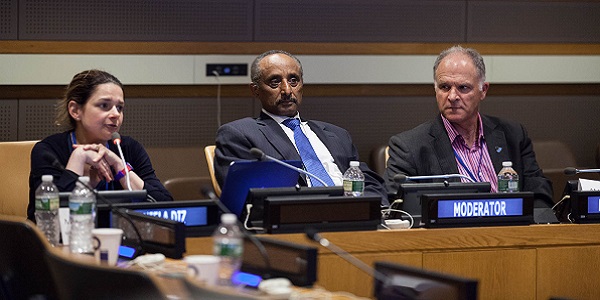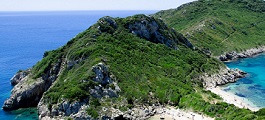SCELG at the UN Ocean Conference
June 2017: Professor Morgera and Dr Diz attended the UN Ocean Conference in New York from 5-9 June 2017, and organized a side-event entitled “Sustainable Development Goals and the blue economy: Investing in Marine Ecosystem Services for Poverty Alleviation.” The side-event was hosted by the Permanent Mission of Eritrea to the United Nations, in partnership with the Ecosystem Services for Poverty Alleviation (ESPA) programme, the Global Ocean Biodiversity Initiative (GOBI), the UK Centre for Environment, Fisheries and Aquaculture Science (Cefas), and Marine Scotland. The side event discussed blue economy concepts and investment in natural capital in the context of SDG 14, as well as relevant findings from fisheries-related ESPA projects, including the Marine Benefits project and its upcoming Marine Policy special issue exploring synergies among ecosystem services, poverty alleviation, the ecosystem approach to fisheries, and the SDGs.
This side event demonstrated the complex nature of poverty alleviation, especially in light of a changing climate, and how the ecosystem services framework can help identify appropriate conservation and management measures, as well as beneficiaries and the most vulnerable in society, and inform decision-making processes and trade-offs in the context of an ecosystem approach, and how the multiple dimensions of poverty relevant to multiple SDGs have been addressed by ESPA fisheries-related projects. It also shed light on how the ecosystem services framework can bridge biodiversity law and human rights.






